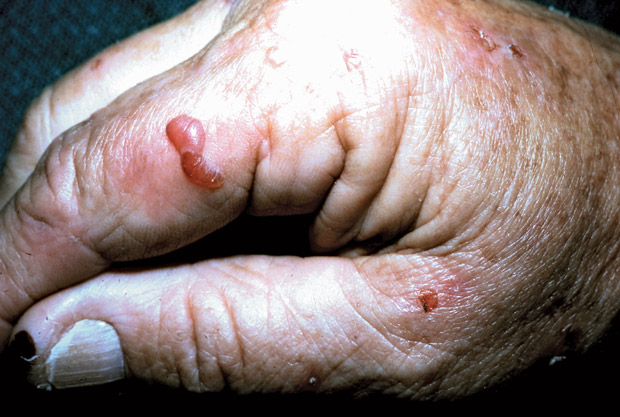Intended consequences
ACP's awards, though not always instrumental in propelling a recipient's career, can inspire, validate, and assure the recipients that their hard work will not go unnoticed, and that they are on the right track.
In what has to be one of the more striking examples of the Law of Unintended Consequences, data indicate that winning the prestigious Fields Medal, the Nobel Prize of Mathematics, which is given to two to four mathematicians younger than age 40 once every four years, is associated with less, not more, productivity. Compare the number of papers published over the ensuing 20 years by awardees versus contenders and it's the contenders who are more productive by a substantial margin. Why, it's as if the winners slacked off!
There is, of course, another explanation, one that is much brighter. The winners, feeling validated and secure, were able to venture into related fields or turn their attention to the really “big” problems, the ones in mathematics that have remained unsolved, resulting in fewer papers but more significant achievements.
So members of the College's Awards Committee can exhale. I served as that Committee's Chair for two years, and it's nice to know that our award-winning scientists are probably still doing science, our award-winning teachers are still teaching, and our award-winning volunteers are still selflessly serving the underserved and advancing patient care and education in so many ways. In fact, they are likely more productive having won an award, and I have the data to prove this.
I don't think I will be winning the ACP Award for Science for this piece of research (italics added by me to maintain my standing with College members who actually do research), but I did conduct a survey. I polled the past 10 winners of the Walter J. McDonald Award for Early Career Physicians, which recognizes outstanding achievement by a physician member who is within 16 years of graduating from medical school. Areas of achievement for the McDonald Award may include leadership, academics (including publishing, teaching, and mentoring), and also volunteerism. Most, if not all, nominees are younger than 40 years old, so this really is the ACP equivalent of the Fields Medal. I won't list them here, but names of past McDonald Award winners, and all our award winners for that matter, are available online. It's fun to scan the lists.
With the promise of anonymity, I asked the McDonald winners just one question: What impact, if any, do you believe the McDonald Award had on shaping your career? I urged them to keep their responses relatively objective. I was not looking for hyperbole or pledges of lifelong allegiance to the College. What I received back is heartening.
First, I should point out that three McDonald awardees are serving or have served on the Board of Regents, and two are about to join the Board of Governors. Others served the College in various positions of leadership. That proves nothing about the direct impact of winning the award, but at least we can begin to talk about an association between an award and ongoing service and commitment.
Did the award propel the recipients to greater career heights? Two awardees thought not, at least not the award itself. That's fair. The same respondents did, however, comment on how much the award meant to them personally. Others spoke about state and national leadership opportunities that they felt were, at least in part, derived from the recognition conveyed by the award. One characterized the McDonald Award's effects as “infinite,” not only recognizing past accomplishments but motivating and inspiring the recipient to do even more. And one said, “It helped me believe I belonged.”
So what have we learned from this exercise? I believe we have learned that awards, though not always instrumental in propelling a recipient's career, can in fact be influential in several ways. They inspire, they validate, and they assure the recipients that their hard work was not and hopefully will not go unnoticed, and that they are on the right track.
This brings me to the subject of College awards in general. Awards, as you know, are given to persons, groups, or organizations to recognize excellence and highly significant contributions in a field. The national College awards are as old as the John Phillips Memorial Award for Outstanding Work in Clinical Medicine, which was established in 1929 and whose list of past awardees reads like a Who's Who of internal medicine, and as new as the Steven E. Weinberger Award for Physician Executives/Leaders, which was established in 2015, with the worthy Jordan J. Cohen, MD, MACP, as the inaugural recipient. Selecting the national award winners, which is done alongside identifying the year's Masters, is hard work that entails many nights at home reading through dossiers and letters of recommendation and two very intense days of committee work.
The Awards Committee and staff probably deserve an award but, of course, you can say that about all of our committees. What also impresses, however, is the wide range of the College's awards. In addition to the awards given out by the Chapters, we give out 23 awards each year reflecting the breadth of the College's activities, from patient care, research, advocacy, and public policy to volunteerism and teaching. It's what we do.
I encourage you to review the College's list of awards along with those of your Chapter, and think about potential nominees. The awards process means a great deal to the College, and the awardees are always deeply grateful; for some, it is a life-changing, career-shaping accomplishment. And I promise you, the winners will not slack off.
It is an honor to serve as your President, to lead our College, and to have the opportunity to share my thoughts on issues of importance to internal medicine and ACP. Please let me hear from you.




